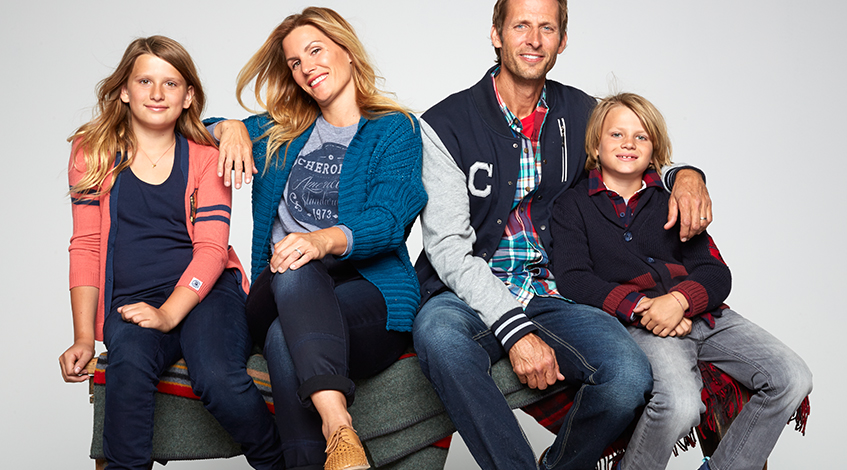As Cherokee Global Brands continues working to rightsize its business operations—which in the third quarter included a $3 million reduction in selling, general and administrative expenses—a host of risks could knock the company off track.
In a note to investors late last week, Dave King of Roth Capital Partners outlined a litany of areas where Cherokee could stumble. As King wrote, risks include:
- Consumer spending continues to transition from traditional retail channels to e-commerce and put pressure on brands. Lackluster sales through traditional channels, retail store closings and/or potential retail bankruptcies could put pressure on Cherokee sales.
- An improving economic environment and rising consumer confidence could lead to higher interest rates, potentially putting pressure on equity multiples and Cherokee’s valuation.
- Sales are dependent on the company’s and its partners’ abilities to successfully predict the fashion preferences of its customers. Failure to accurately anticipate trends and consumer preferences could negatively affect sales.
- Although the company has seemingly little product risk since it handles no manufacturing and holds no inventory, we worry that this risk is somewhat elevated versus other brand licensors since Cherokee handles much of the product design.
- Part of the company’s growth strategy hinges on category expansion. Excessive product expansion into adjacent verticals could dilute core brands.
- Cherokee is highly dependent on the efforts of senior management. The departure of key members of this management team could negatively impact results.
Shares of the company were down 4 cents, or 6.2 percent, at market close Monday after Cherokee last week narrowed its guidance for the fiscal year 2019. The company reported third-quarter revenues declined 25 percent as the company continues to transition from its DTR licenses to new wholesale licensing partners in the United States.
This was partially offset by revenues from the company’s new product development and design agreement. Revenue generated from the company’s Hi-Tec brand portfolio grew $1.6 million to $8.6 million for the nine-month period, an increase of 22 percent compared to the first nine months of the prior year.
“This has been a very productive year for the company. Although it’s early, our licensees and retail partners are seeing a significant revenue opportunity for the Hi-Tec portfolio of brands as they introduce new categories into new distribution channels on a global scale,” said Henry Stupp, CEO. “Further, our more efficient structure is focused on maximizing the value we can deliver on brands we own, brands we create and brands we develop for new partners, which taps into the capabilities of our product design and development platform.”
Stupp added, “Looking to the remainder of fiscal 2019 and beyond, we intend to expand the reach of our brand portfolio through category growth, new territories, new design partnerships and new licensees. The scalability, relevance and strategic plans that have been established for our brands are leading us to be a more profitable and responsive global brand management company.”
Revenues were $5.8 million in the third quarter, a decrease of $2 million, or 25 percent, from $7.8 million in the prior year, but topping Wall Street’s estimates by $0.2 million. The year-over-year decline largely reflects the transition of the company’s Tony Hawk, Cherokee, and the Liz Lange brands in the U.S. from a direct-to-retail model to new wholesale licensing partners.
Revenues in the prior year quarter includes $2.4 million from non-renewed licenses and Flip Flop Shops, which was divested in June 2018. These declines were partially offset by revenues from the company’s new multi-year product development and design agreement in China. Revenues from relationships that existed in the third quarter of fiscal 2018 increased $0.4 million, or 8 percent, year over year.
Revenues for the first nine months of fiscal 2019 were $18.3 million, compared to $22.5 million in the prior year, a decrease of $4.2 million, or 19 percent. Non-renewed licenses and Flip Flop Shops represented $8 million of revenues in the first nine months of the prior year. These declines were partially offset by revenue increases for the Cherokee and Hi-Tec portfolio of brands along with revenues from the new product development and design agreement. Revenues from relationships that existed in the first nine months of the year increased $3.8 million, or 26 percent.
Operating income for the third quarter was $2.1 million, compared to an operating loss of $1.5 million in the third quarter of the prior year. The operating loss during the nine months of fiscal 2019 was $0.5 million, compared to a loss of $5 million in the first nine months of the prior year.
Net income from continuing operations was $0.1 million, or zero cents per diluted share in the third quarter of the current year, as compared to a net loss of $2.4 million, or $0.17 per diluted share in the prior year. The net loss from continuing operations for the first nine months of fiscal 2019 was $11.7 million, or $0.83 per diluted share, compared to net loss of $10.7 million, or $0.81 per diluted share in the prior year.
Adjusted EBITDA increased $1.1 million, or 68 percent to $2.6 million for the third quarter, compared to $1.6 million in the prior year. This improvement was due to the year-over-year decline in selling, general and administrative expenses. Adjusted EBITDA during the first nine months of fiscal 2019 increased $2.8 million, or 69 percent to $6.7 million, compared to $4 million in the first nine months of the prior year.
The company narrowed its guidance for the fiscal year ending February 2, 2019. Cherokee now anticipates revenue to be in the range of $25 to $26 million, adjusted EBITDA to be in the range of $9 to $10 million and SG&A to approximate $16 million.
Roth Capital Partners lowered its price target from 85 cents to 65 cents, which now assumes a 5.4x (down from ~5.5x) EV multiple on a new FY20E EBITDA estimate.
“Factors that could cause shares to deviate from our price target include increased competition, inaccurate predictions of consumer preferences and fashion trends, the loss of key customers, the departure of key members of management, weak consumer spending, successful resolution of ongoing negotiations with Cerberus, or better-than-expected revenue growth,” King wrote.
Photo courtesy Cherokee Global Brands
















